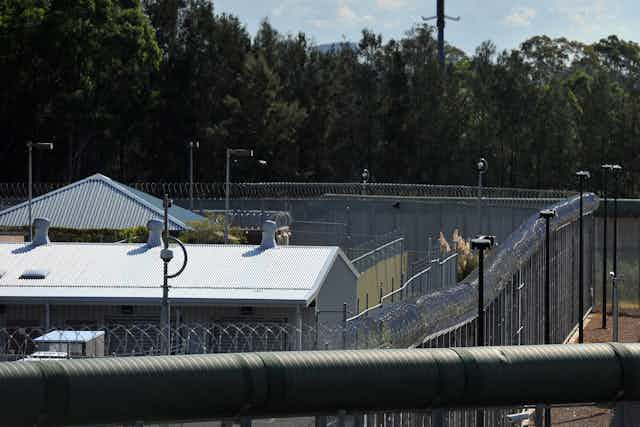A recent High Court decision surrounding the adequacy of a sentence handed down in an incest case has sparked debate over whether Victoria’s sentencing regime is too lenient.
The state’s Victims of Crime Commissioner, Greg Davies, argued the decision confirmed sentencing in Victoria had “lost its way”. Shadow Attorney-General John Pesutto promised the opposition would, if elected next year, introduce mandatory minimum sentences for certain serious offences – a call Sentencing Advisory Council chair Arie Freiberg rejected.
The media reporting that followed claimed Victorian prosecutors had for years despaired at the lax sentences handed to some of the state’s worst criminals. One article asserted that Victoria “is the joint lowest incarcerator of serious criminals”.
The case
The case on which the High Court recently handed down its decision involved two charges of incest, one act of sexual penetration of a child under 16, and one act of indecent assault.
At the time of the offending, the victims were aged nine to 13 and 15 to 16. They are sisters, and their mother was in a relationship with the offender at the time of offending. As a result of the offences one of the victims fell pregnant, and the pregnancy was later terminated.
In relation to this charge, the sentencing judge sentenced the man to three-and-a-half years’ imprisonment. The total sentence imposed by Victoria’s County Court was five-and-a-half years, with a non-parole period of three years.
The state’s Director of Public Prosecutions (DPP) appealed to the Court of Appeal, arguing the sentence was inadequate. The Court of Appeal agreed that current sentencing practices for incest are “demonstrably inadequate” and “devalue the objective gravity of the offence”.
The Court of Appeal went on to say that judges should adjust sentences upwards, but said it was constrained in the case by current sentencing practice. Accordingly, it dismissed the DPP’s appeal.
The DPP then appealed to the High Court, which unanimously allowed the appeal and ordered that the matter be returned to the Victorian Court of Appeal for resentencing. The High Court said:
… sexual abuse of children by those in authority over them has been revealed as a most serious blight on society. The courts have developed … an awareness of the violence necessarily involved in the sexual penetration of a child, and of the devastating consequences of this kind of crime for its victims.
The High Court argued that the Court of Appeal had placed too much weight on current sentencing practices, and should instead have corrected the injustice it identified.
Is Victoria really so lenient?
Victoria does have one of the lowest imprisonment rates in Australia, together with Tasmania and the Australian Capital Territory. The reasons for this are complex and stretch back to the 1880s.
However, the court data for 2015-16 indicates that 64% of defendants convicted of sex offences in the Victorian higher courts (the County and Supreme Court) were sent to prison, compared with 68% nationally.
For all offences in the higher courts, the proportion of Victorians sent to prison is actually higher than the national average (70% versus 68%).
Consideration of the length of sentences imposed shows that the mean (average) and median (typical) sentence imposed for sex offences in the higher courts in Victoria in 2015-16 was 42 months. The national average was 44 months, with a national median sentence of 36 months. So, serious sex offenders in Victoria typically received a longer sentence than the national average.
For all offences in the higher courts (that is, all serious offences), the story is different: the average and typical sentences for Victoria were 38 and 24 months respectively, while the national figures were 38 and 30 months. This means that, while the typical sentence is shorter, the average sentence is the same for Victoria as the rest of Australia.
The same is true for sentences for sex offences imposed in all courts (including less serious sentences imposed in the magistrates’ courts).
‘Getting tough’ and political choices
Sentencing has many purposes. These include just punishment for the offender, rehabilitation and deterrence.
Increasing the length of prison sentences does not increase their deterrent effect. Short prison sentences also have no greater deterrent effect than comparable community orders. Overall, imprisonment rates are more related to political choices than to crime rates.
Further reading: The evidence is in: you can’t link imprisonment to crime rates
Governments across Australia have passed a range of reforms designed to “get tough” on sex offenders. However, national research has shown only minor differences in the key measures of public attitudes to sentencing across the country, despite the extensive differences in relation to sentencing.
This suggests that public (dis)satisfaction with the justice system is independent of actual sentencing policy and practice.
The consequences of sexual offences can be devastating for victims and society more generally. The High Court and parliaments have made it clear that sentencing practices for many of these offences have previously been inadequate. But an overriding focus on increasing sentences may not necessarily be the best means of redressing the harm caused.

